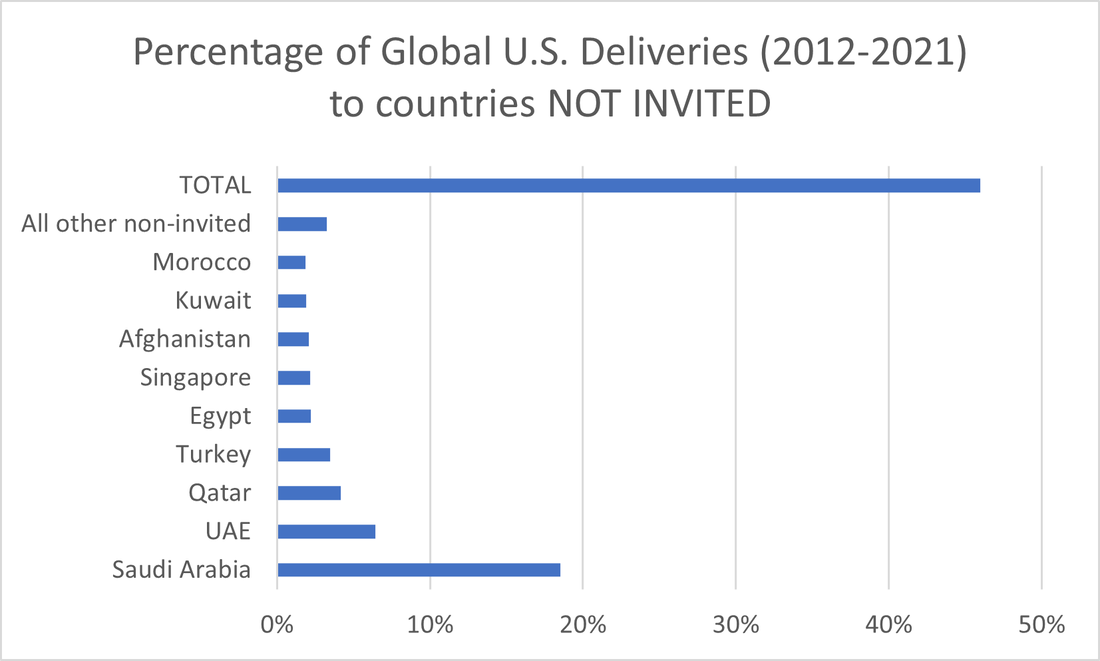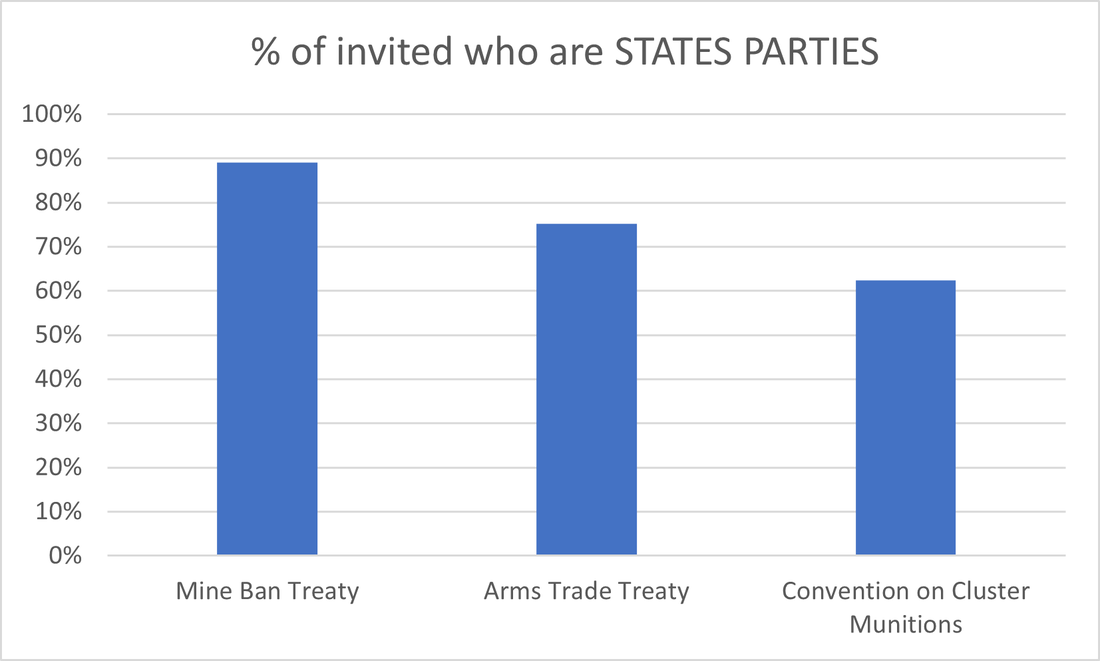In 2021, the United States hosted the Summit for Democracy, inviting more than 100 countries as well as individuals from civil society and the private sector to engage in a "shared effort to set forth an affirmative agenda for democratic renewal and to tackle the greatest threats faced by democracies today through collective action," with a focus on three themes: "(1) strengthening democracy and defending against authoritarianism; (2) fighting corruption; and (3) promoting respect for human rights."
Aside from some aspects of the corruption track, there appears to have been very little recognition or discussion of the role that weapons actually have on the challenges at the heart of the Summit. We certainly do know that weapons can enable authoritarians, corruption, and human rights abuses. With the war in Ukraine also increasingly being framed as a fight between autocracy (namely Russia) and democracy (Ukraine), having an understanding of where there are disconnects between rhetoric and practice is essential.
A dive into just a couple data sources, using a filter of who was invited to the Summit and who was not, indicates that much of what the United States has done over the past decade appears to run counter to Summit goals - by providing weapons to autocracies. And, U.S. policy is out of step with other democracies, especially when it comes to supporting humanitarian disarmament.
Nearly half of U.S. major weapons have gone to countries not invited to the Summit for Democracy
Over the past decade (2012-2021), 46% of the United States' deliveries of major weapons systems went to countries not invited to the Summit for Democracy - based on SIPRI data of major arms deliveries during that period. (View data.)
Of those invited to the Summit, 89% are states parties to the Mine Ban Treaty, 75% to the Arms Trade Treaty, and 63% to the Convention on Cluster Munitions. (View data.)
Regarding the newer Treaty on the Prohibition of Nuclear Weapons, which only has 61 states parties, the majority of those states parties (61%) were invited to the Summit. [updated May 20, 2022]
The United States is not a state party to any of these treaties. (The United States did sign the Arms Trade Treaty. The Trump administration took steps to reject that signature. See resource page.)
For more thoughts on these disconnects and the opportunities that the humanitarian disarmament approach provide, please see Responsible Statecraft (March 2022 and July 2020) and Defense News (November 2020).
Special thanks to Hadeel Abu Ktaish who aided in compiling this data in March and April 2022.



 RSS Feed
RSS Feed